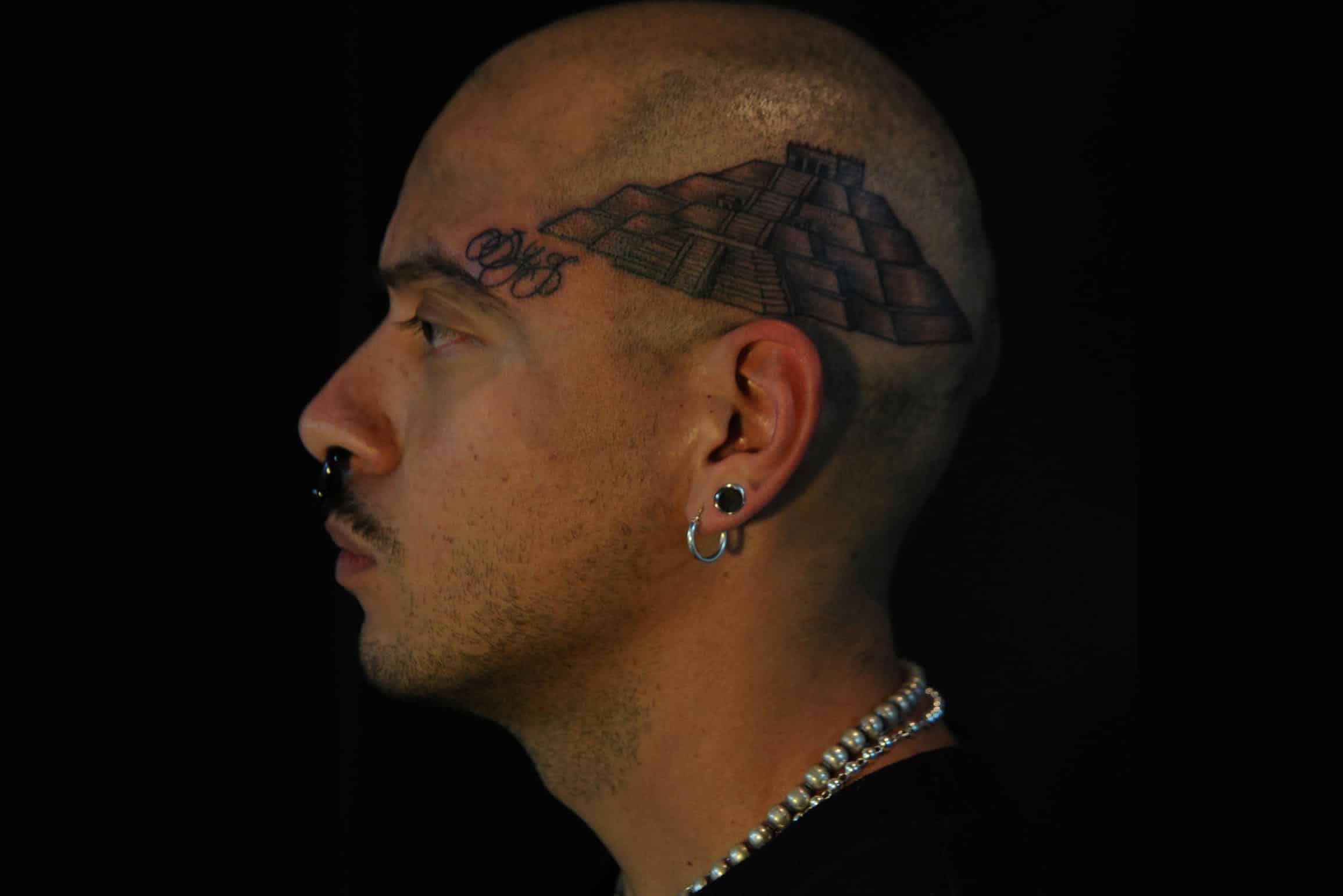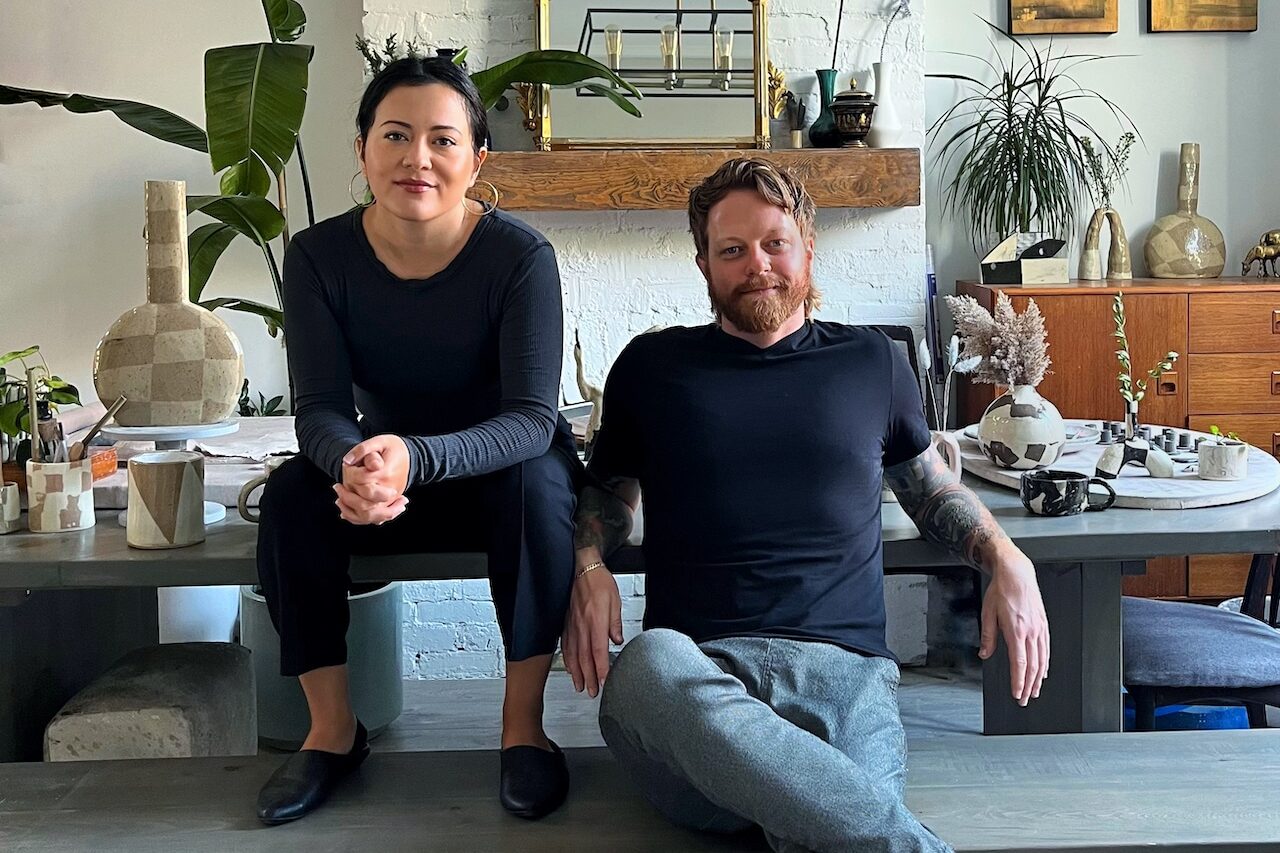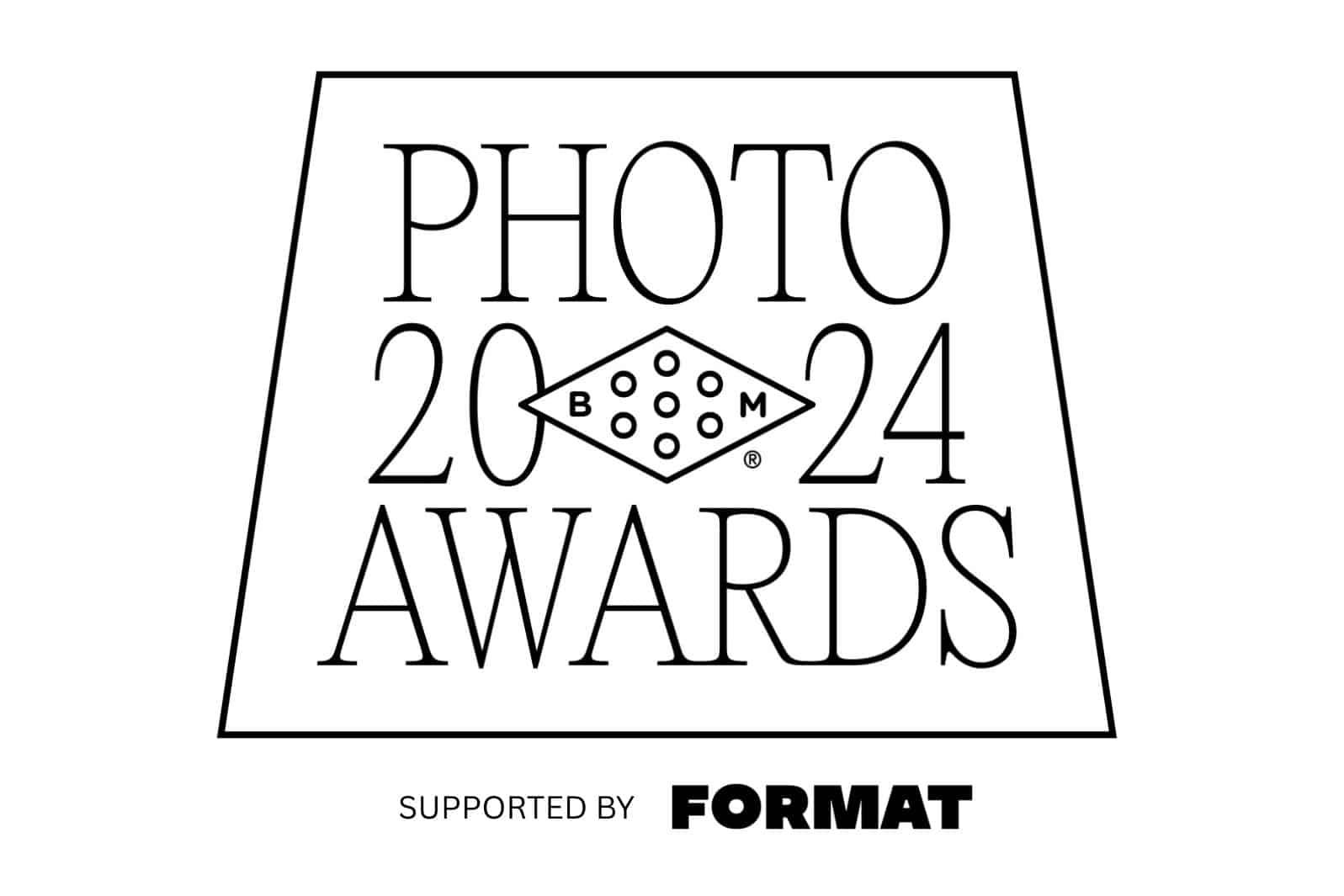There was a time when, to be a legit tattoo artist, you had to apprentice with an experienced artist at an established tattoo shop. A time when people filled up their torsos before expanding to their limbs, and artists would refuse to tattoo clients’s hands, necks, or faces unless they were otherwise completely covered. While these ideals still exist, they’ve become far more less regulated—and we have social media to thank for the changing landscape of tattoo art. But there are some traditions that still have a place in the world of stick and poke.
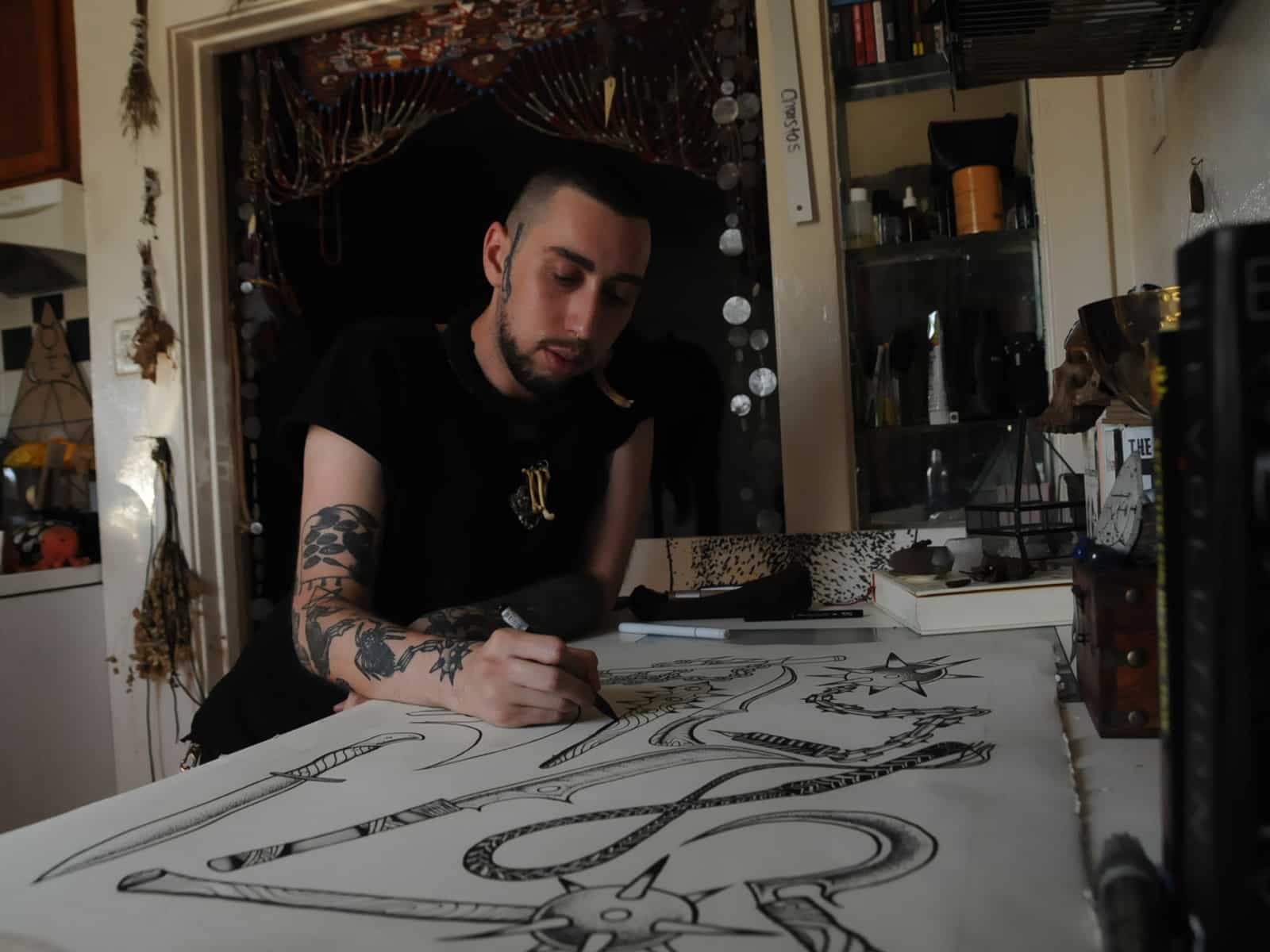
Christos Tejada, a tattoo artist based in LA, got his start in the traditional way: he found an artist to apprentice, putting in his time by learning from a mentor. Tejada, who works mostly in black and grey, has a “fascination with hidden meanings,” often infusing his work with “elements of esoteric symbolism.” He credits the development of his style to knowledge gained through working in shops alongside people who have been in the industry for years.
“It took me two years to actually find my apprenticeship,” says Tejada. “It takes a lot of time, and you get rejected a lot, which is kind of okay. I’m used to that,” he said, laughing. “I got rejected a lot. I pursued the artists whose work I was most attracted to, and it just takes a lot of time, and sometimes people don’t want to give you their time. Personally, I’m not big on the mindset of, ‘this is the right way to do it,’ because honestly, I just didn’t know. I gave myself a timeline of two years to find an apprenticeship, because that’s what I had read was the ‘appropriate way’ to go about it. But if I hadn’t found one, I was just going to teach myself.”
It just takes a lot of time, and sometimes people don’t want to give you their time.
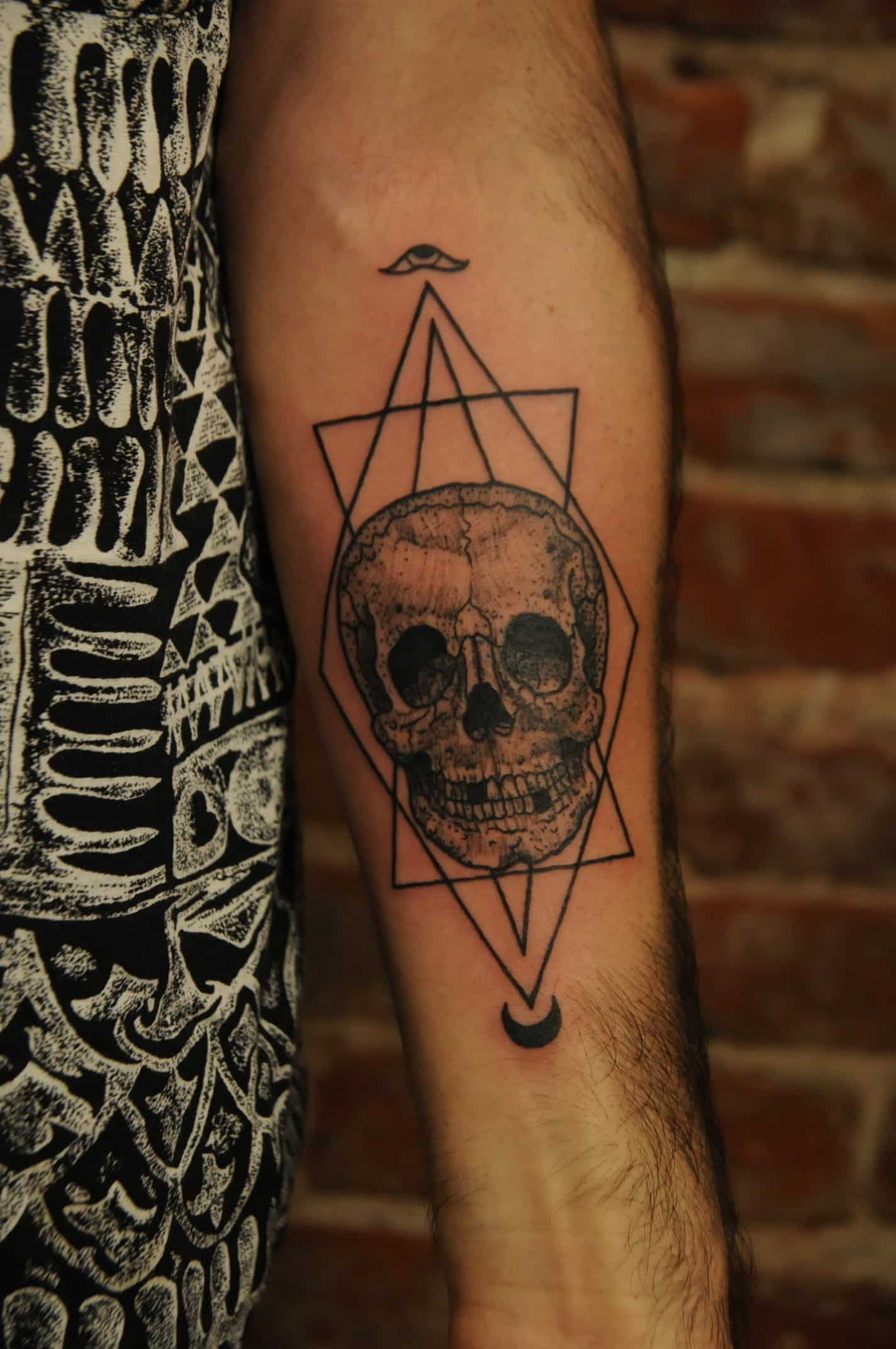
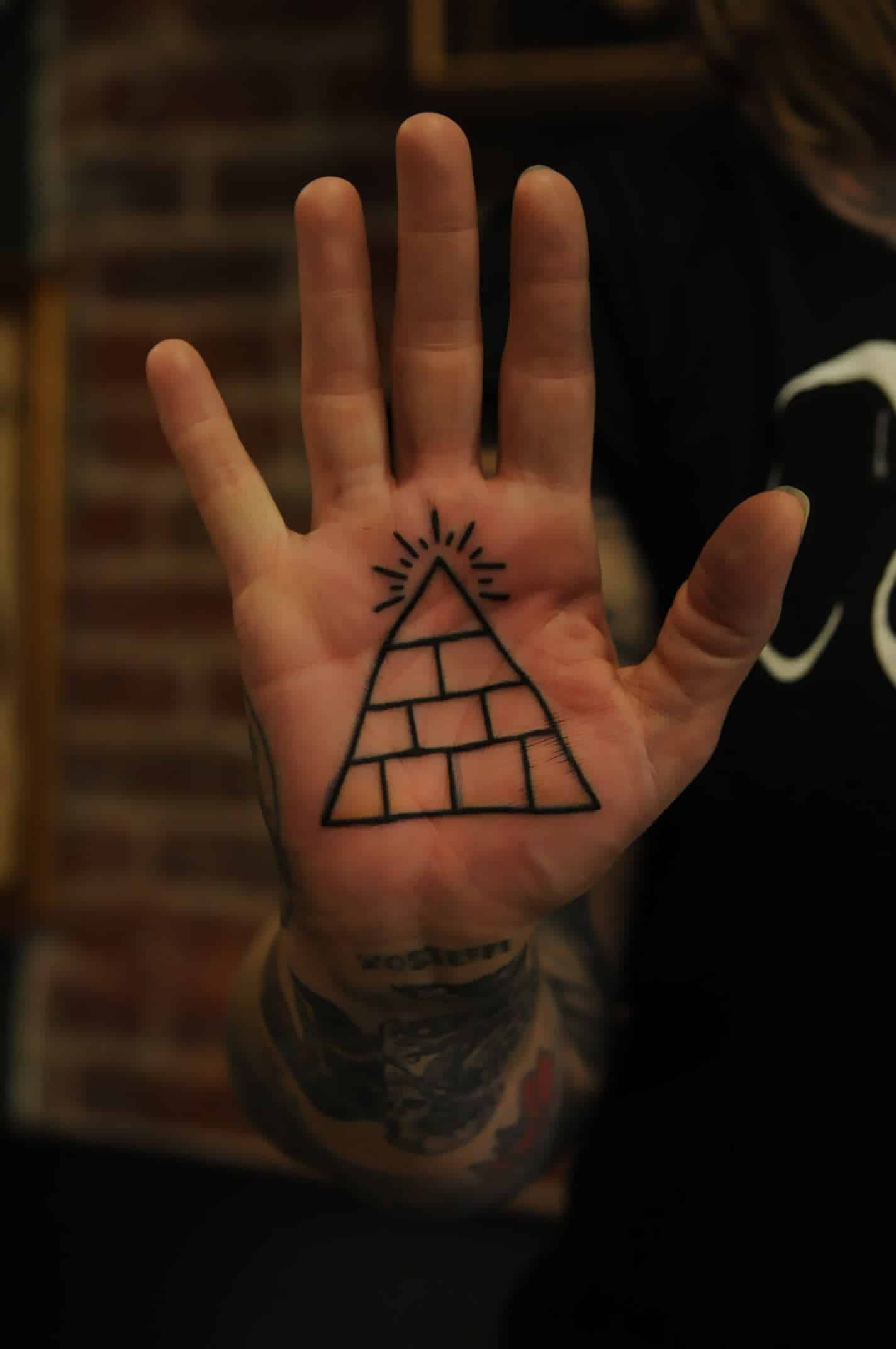
Finding a shop to be your home base can be difficult because spots are limited, and turnover is slow. Platforms like Instagram make it easy to work from home in the interim by allowing you to showcase your style, post available flash, and message clients directly. But while he doesn’t necessarily see apprenticing as the “right” or only way to go about things, Tejada does see the benefits that come from working in a shop.
“You collect knowledge from other artists, especially if you work with people who have been tattooing for 10+ years,” he says. “You’ll learn so much from them technique-wise. You might be at home tattooing, and you have your technique set, but there might be easier, simpler ways to go about it. Another benefit is, if you don’t have a niche of clientele or whatever, you have that extra income coming in from walk-in clients.”
Learning from hands-on experience is no doubt invaluable, but social media also plays a role in introducing artists to a broader range of different techniques and styles that they might otherwise not have been exposed to. And with more exposure to tattoos, they become less of a counter-culture and more a part of the mainstream. The disappearance of this stigma means more freedom for both artists and clients.
You collect knowledge from other artists, especially if you work with people who have been tattooing for 10+ years.
“Usually at a tattoo shop there’s all the traditional methods, you know?” Tejada says. “There’s Japanese style, there’s Americana…But the introduction of [social media] has influenced a lot of new styles. When I started observing other artists online, I noticed that there’s this more graphic style with really heavy blacks, and negative spaces involved.
“There’s definitely been a bigger influx of people getting more visible tattoos. People aren’t afraid to get their fingers done, or the side of their head. I think artists have been more open to not discouraging people to get those things because that might stop them from getting a job or whatever. That’s how it used to be—that’s what I remember the stigma was. People would try to persuade you not to tattoo people in visible areas that because they didn’t want you to blame them for not getting hired.”
“Sometimes I agree with that, but other times, I’m like, ‘It’s not my body and it’s not my choice’. Why should I tell this person what they can and can’t do? I’ve done a few tattoos that were pretty extreme, like on someone’s forehead. But the person said it was going to motivate them to live and not work a boring job. So it’s like, ‘Okay, if that’s what your state of mind is, hell yeah, more power to you’. I’ll tattoo your forehead. If that’s how they visualize their bodies, why not? Let them empower themselves.”
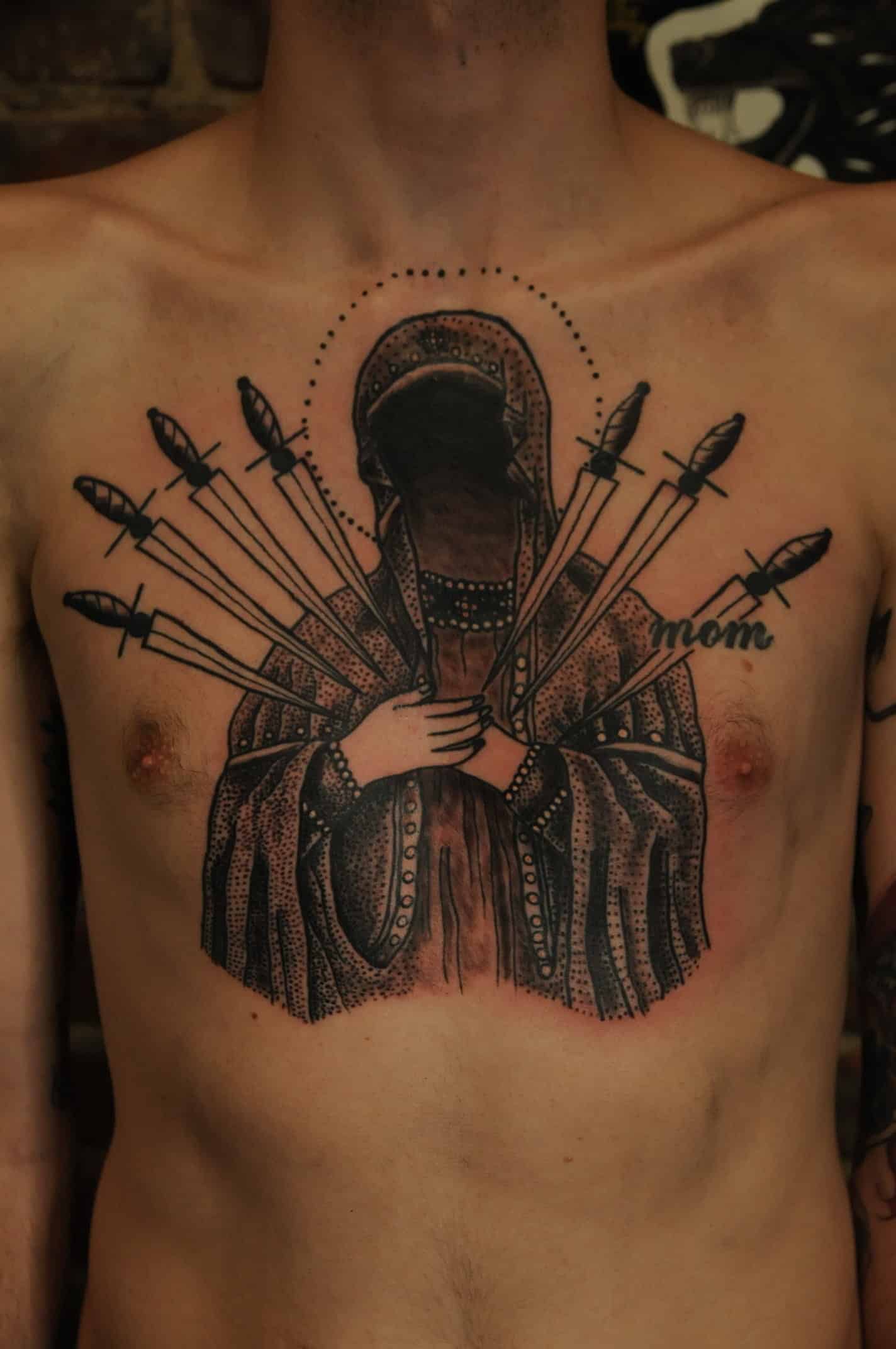
I’ll tattoo your forehead. If that’s how they visualize their bodies, why not? Let them empower themselves.
For tattoo artists, ultimately social media can’t be ignored. It acts not only as a public way to share their portfolios, but also as a means through which to connect with fellow artists and potential clients. It builds an international community between artists in a way that couldn’t exist before. As the once strictly regimented industry opens up and allows for breathing room, the community becomes more inclusive than ever before.
“It’s kind of shitty to tell someone what they can do with their body,” summarizes Tejada. “I hope the traditional ego of regulating what someone can do with their body is disappearing. I totally respect what they’re doing and I understand it, but why are there those rules? Why do I have to fill up my torso first? Why?”
See more of Christos Tejada’s work on his portfolio at christostejada.com, built using Format.
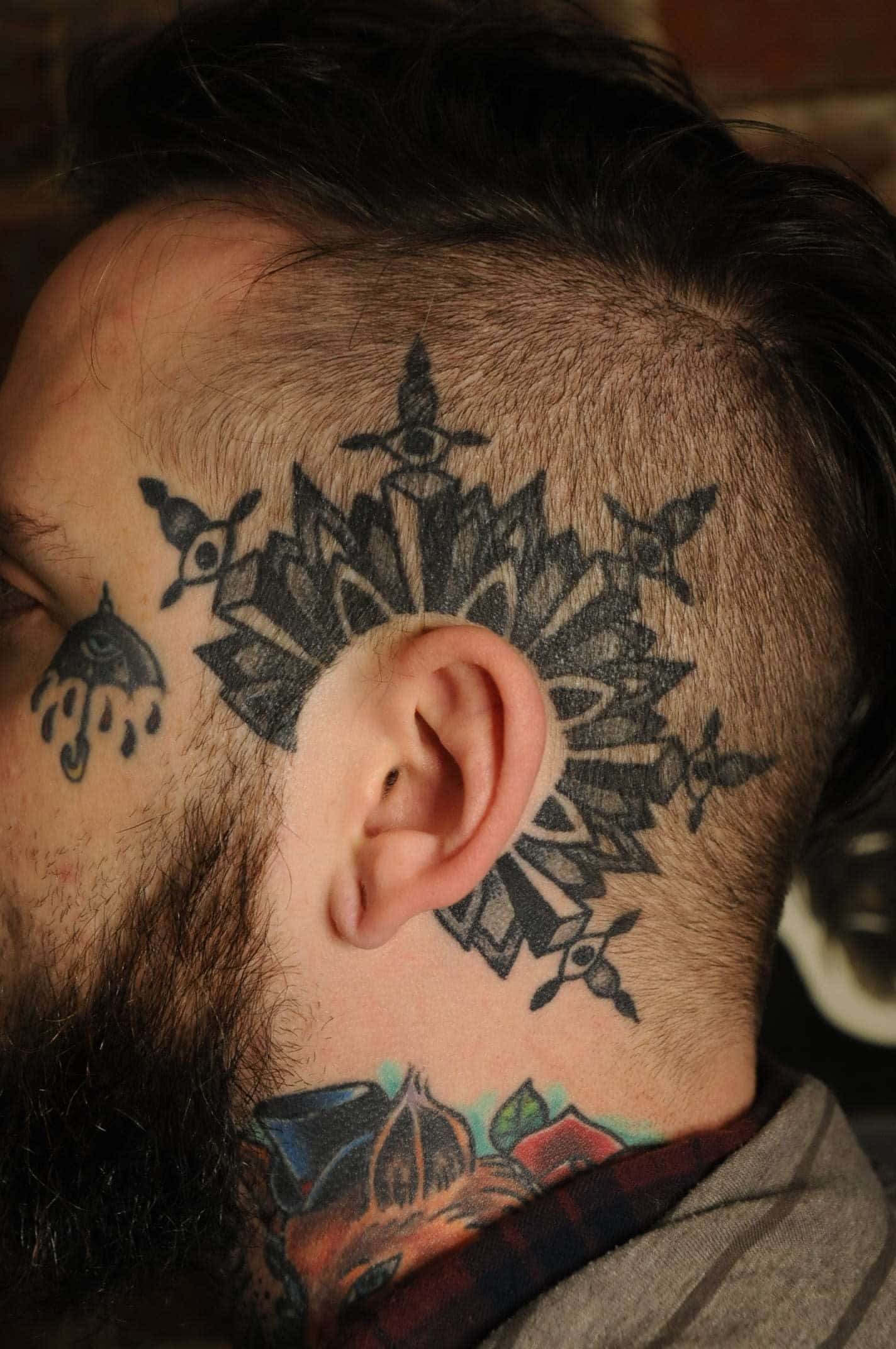
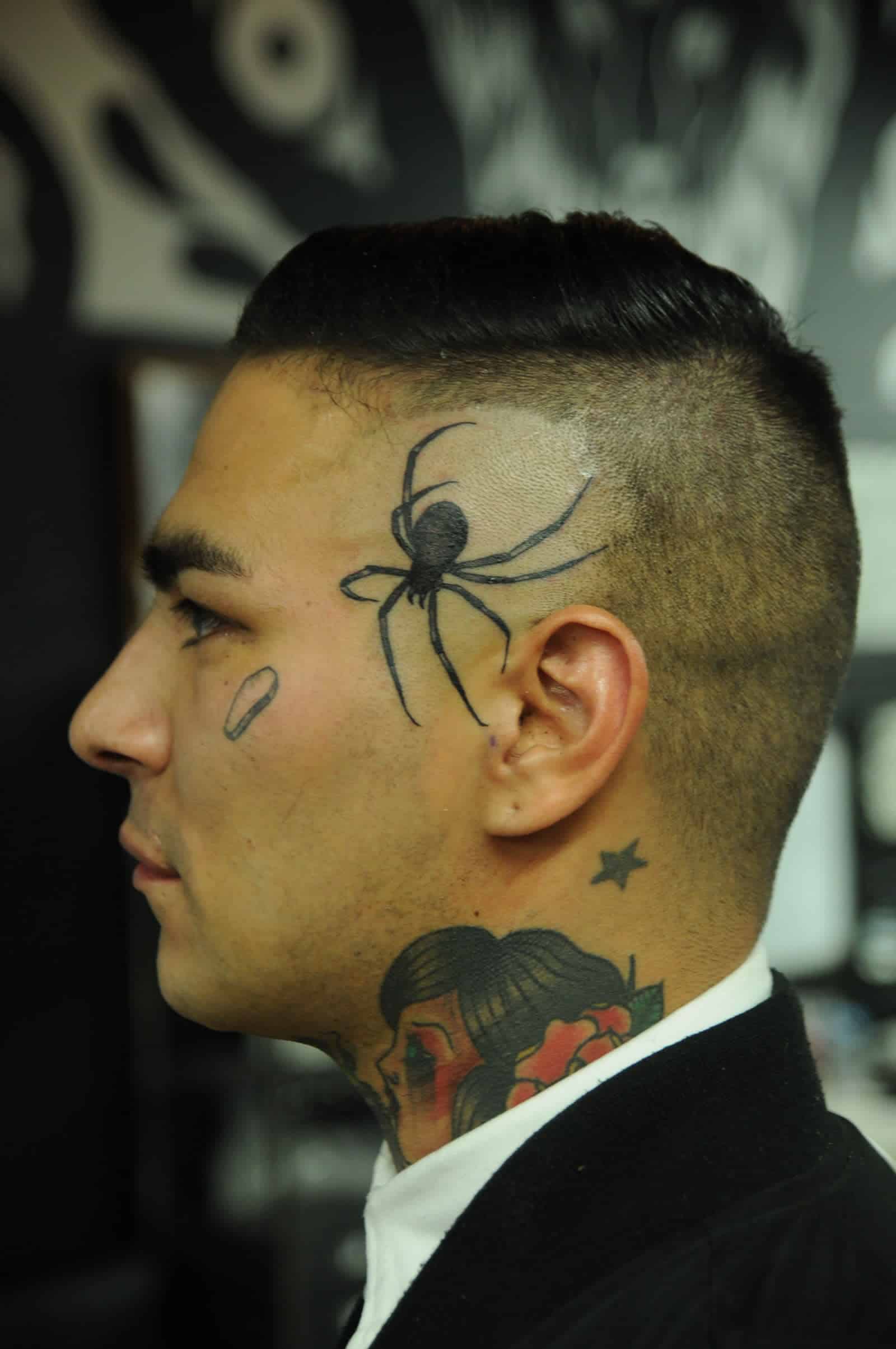
Other articles about tattoo art:
Fine Line Tattoo Artist Jess Chen is Super Fresh
Out of This World Tattoo Designs By ‘Sean From Texas’
Illustrations to Inspire Your Next Tattoo
